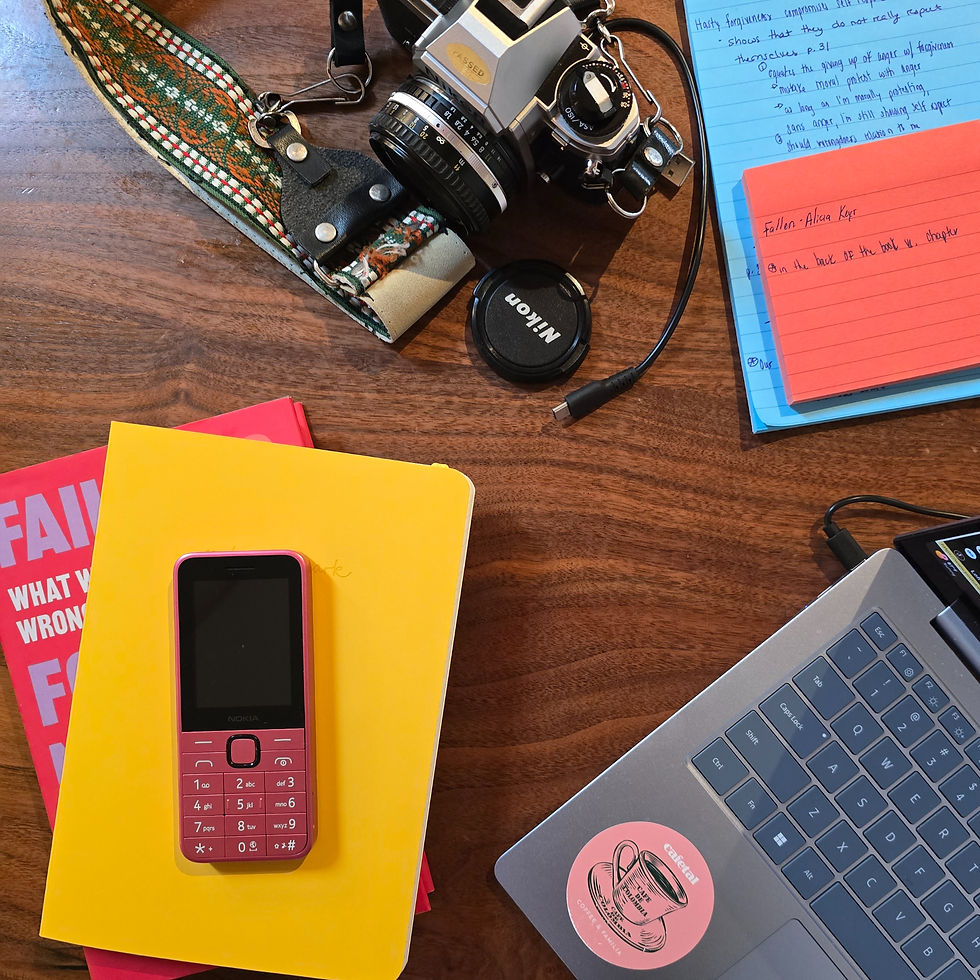In the back of the chapter: Failures of Forgiveness, Myisha Cherry.
- Nov 2, 2025
- 3 min read

Context: Growing up, I believed someone had literally placed the answers in the back of the book - but I thought it was just a metaphor. To me, it meant: the more you read, the more answers you'll find. Now I realize my friends and teachers may not have meant it literally.
Years later, I'm building a series about that metaphor. This series is my way of flipping to the back of the book - metaphorically speaking - and seeing what truths emerge when we read with curiosity and care. I'll summarize a chapter and share the answers I've found. Today, I'm reflecting on Chapters 1 and 2 of Failures of Forgiveness by Miysha Cherry.
Song for this post - Wings of Forgiveness - India Arie

My initial, visceral reaction was to weaponize this book—to hurl paragraphs at people who have wronged me. But the very core of my reaction is what stops me: I’m halted by the pieces of myself reflected in the author’s examples.
Cherry tackles the assumption that hasty forgiveness is often perceived as a sign of low self-respect. She expertly dissects this critique to show why that simplistic argument falters, but in doing so, she reveals a more nuanced truth: when an individual protests by staying angry, it is a sign of self-respect.
My mother always used to quote, "Be angry and sin not" (Ephesians 4:26). Reading Cherry’s work, I felt an urge to send a few text messages saying, "I take back my apology!" I felt this because I realized I deserve to experience the full array of my emotions. If that means staying angry due to someone's hurtful action, then so be it.
Cherry also asks: does the relationship to the wrongdoer factor into the speed at which someone forgives? Like Cherry, I'm still waiting to hear back from the Forgiveness Olympics Committee. I will have to get back to you, the reader, on that one, haha.

Regardless of our personal feelings, the speed of forgiveness can send a wrong social message. The book offers an example of how a woman crying in public may reinforce the harmful stereotype that women are overly emotional.
This idea instantly reminded me of a situation where a friend forgot to text me about a party. When he apologized, I hastily replied, "Don't worry about it. You’re good." The way his face scrunched up indicated I’d made a mistake. Although I can’t go back in time, I now understand that even a small pushback—rather than immediate absolution—sends a vital social message that the action was not acceptable.
However, quickly forgiving sometimes has nothing to do with external messaging. Cherry explains that our individual psychological survival can sometimes play a bigger role in outweighing the message we could be sending. Psychological reasons may never be clear to onlookers, and no one truly knows the factors that lead an individual to forgive.
In my case, with the party invite, my overriding concern was passing our master's degree classes. If passing meant missing a party or two, I was fine. Whether or not my quick forgiveness sent the wrong message to my friend was ultimately secondary to my own psychological concern at the time. At least I passed the class!
Now that I have finished these chapters of Failures of Forgiveness, I no longer feel conflicted. Therapists, church goers, and family members have often pressured me to forgive so that I do not "harbor negative emotions." Myisha Cherry has given me the vocabulary to push back. I now believe that withholding forgiveness is a sign of self-respect. Not only is it a sign of self-respect, but it also communicates that I respect myself enough not to tolerate whatever behavior led me to the point of needing to forgive in the first place.
Follow me on IG - @CanelaFlames.blog Follow my photography account - @Seawrightonfilm Check out the author - Myisha Cherry



Comments